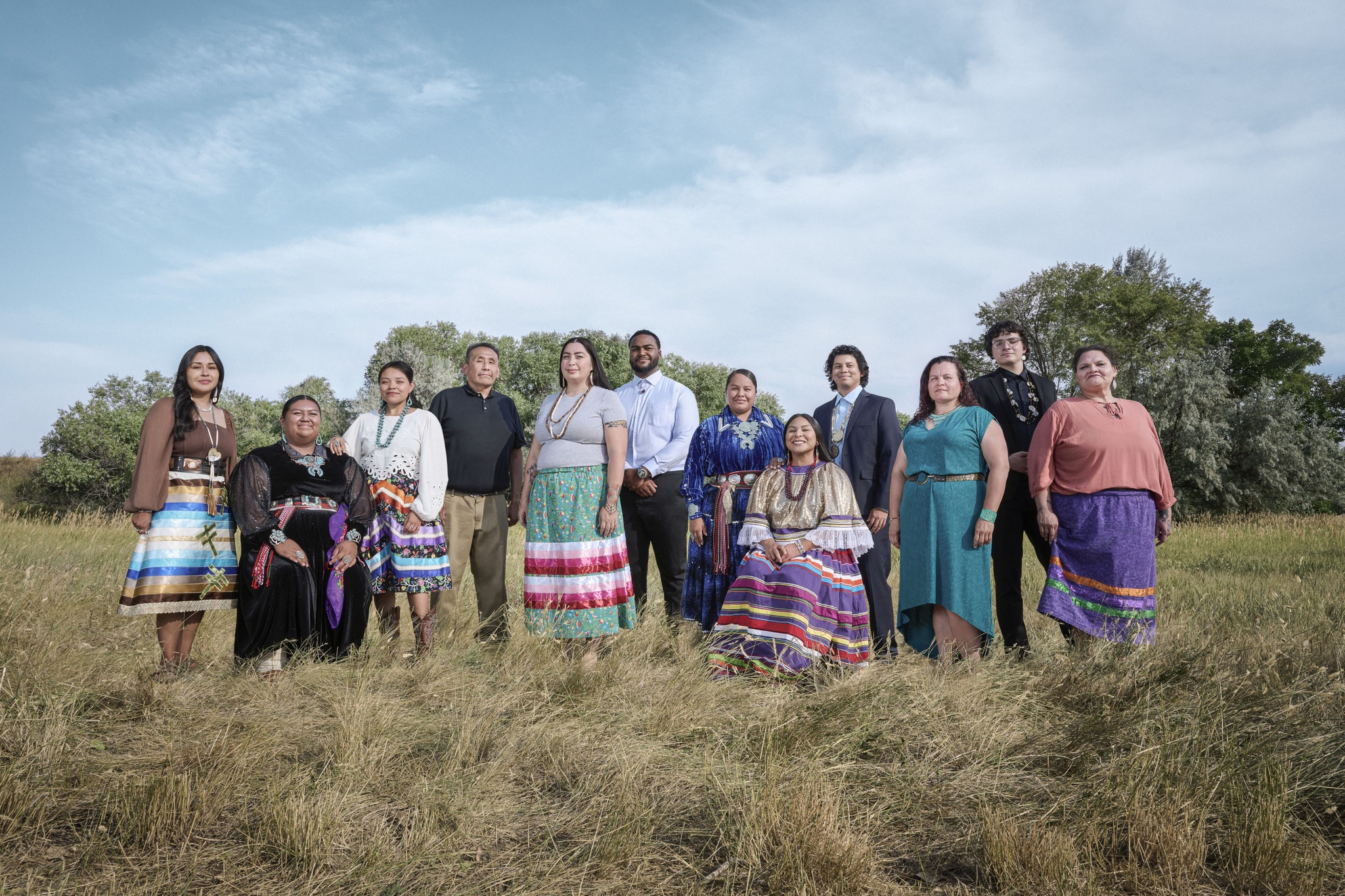
- Details
- By Levi Rickert
The American Indian College Fund has named 12 students to serve as its 2025–26 student ambassadors, a cohort tasked with representing the organization’s mission to expand access to affordable, culturally grounded higher education for Native students.
The ambassadors — Native scholars from tribal colleges, universities, and mainstream institutions — will promote awareness of American Indian and Alaska Native cultures, support their home communities, and share the impact of higher education on Native nations. They will represent the College Fund in media interviews, at cultural events, and on their campuses.
The students completed a multi-day training in Denver focused on leadership development, public speaking, writing, interviews, and social media to prepare them for the role.
The 2025–26 American Indian College Fund Student Ambassadors are:
Aiyanna Tanyan (Seminole Nation of Oklahoma): Earned an associate degree in natural resources from the College of Muscogee Nation. Now pursuing a bachelor’s degree in business with an emphasis in tribal management at Haskell Indian Nations University. She hopes to “show Native youth how to navigate the corporate world as an Indigenous leader.”
Alton Byrd (Yakama): Studied chemical dependency at Northwest Indian College and plans to transfer to the University of Washington to pursue a bachelor’s degree in psychology with a focus on chemical dependency.
Ashley Balletto (Big Valley Band of Pomo Indians): Holds a bachelor’s degree in nursing from Salish Kootenai College and is a third-year Doctor of Nursing Practice student at the University of California–Davis. She aims to provide culturally attuned, community-based care rooted in Indigenous values.
Christopher Eagleton (Karuk Tribe): Pursuing a bachelor’s degree in legal studies at American University and serves on the Juris Mentum Law Review. He plans to earn a Juris Doctor to practice federal Indian law and appellate litigation.
Elena Rodriguez (Mandan, Hidatsa and Arikara Nation): Earned a bachelor’s degree in environmental studies from Sitting Bull College. Now pursuing a master’s degree in geological engineering at the University of North Dakota. She hopes to strengthen her public-speaking skills to “share the importance of tribal education, scholarships, and other valuable resources.”
Joseph Morales (Tohono O’odham Nation): Graduated from Tohono O’odham Community College with an associate degree in liberal arts and is pursuing a bachelor’s degree in English at Arizona State University. He has documented community events through an internship with the Gila River Indian Community News.
Kianna Pete (Navajo Nation): Earned a bachelor’s degree in political science and Indigenous studies and a master’s degree in politics and education from Columbia University. She serves as a Tribal Conservation Program Fellow with the Aspen Institute and works on climate justice education and youth leadership development.
Major Elliott (Wampanoag Tribe of Gay Head): Studying for a master’s degree in physiology and biophysics at Georgetown University. He plans to attend medical school to address preventable diseases in Native communities.
Memory Long Chase (Standing Rock Sioux Tribe): Holds a bachelor’s degree in community advocacy and social policy and is earning a master’s in public administration at Arizona State University. She has worked for 13 years in anti–gender-based violence, trauma-informed care, and homelessness services and received the Arizona Attorney General’s Courage in Action Distinguished Service Award in 2023.
Niagara Rockbird (Navajo Nation): Earned an associate degree in social and behavioral science from Diné College, where she is completing a bachelor’s degree in psychology. A former Miss Navajo Nation (2021–22), she has been recognized as one of “2020’s 25 Under 25” and plans to pursue an MBA and work for the Navajo Nation Washington Office.
Nykesha Nez (Navajo Nation): Pursuing a bachelor of fine arts degree at Diné College, focusing on drawing and painting. She plans to pursue a master’s degree in 2D studio design or museum studies.
Sasha Derenoff (Tlingit): A mother of eight studying business administration at Iḷisaġvik College. Three of her adult children have also attended tribal colleges, underscoring her commitment to tribally controlled higher education.
More Stories Like This
10 Years of Building Business Dreams for Indigenous WomenIchigo Foundation Awards American Indian College Fund Adult Education Program
Bard College Center for Indigenous Studies (CfIS) Hosts Annual Symposium With Keynote Speaker Miranda Belarde-Lewis on March 9–10
American Indian College Fund Announces Spring 2026 Faculty Fellow Cohort
Navajo Nation Signs $19 Million Diné Higher Education Grant Fund Act into Law
Help us defend tribal sovereignty.
At Native News Online, our mission is rooted in telling the stories that strengthen sovereignty and uplift Indigenous voices — not just at year’s end, but every single day.
Because of your generosity last year, we were able to keep our reporters on the ground in tribal communities, at national gatherings and in the halls of Congress — covering the issues that matter most to Indian Country: sovereignty, culture, education, health and economic opportunity.
That support sustained us through a tough year in 2025. Now, as we look to the year ahead, we need your help right now to ensure warrior journalism remains strong — reporting that defends tribal sovereignty, amplifies Native truth, and holds power accountable.
 The stakes couldn't be higher. Your support keeps Native voices heard, Native stories told and Native sovereignty defended.
The stakes couldn't be higher. Your support keeps Native voices heard, Native stories told and Native sovereignty defended.
Stand with Warrior Journalism today.
Levi Rickert (Potawatomi), Editor & Publisher


